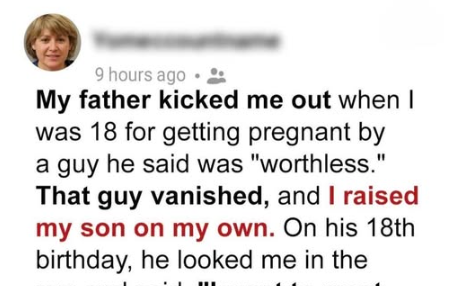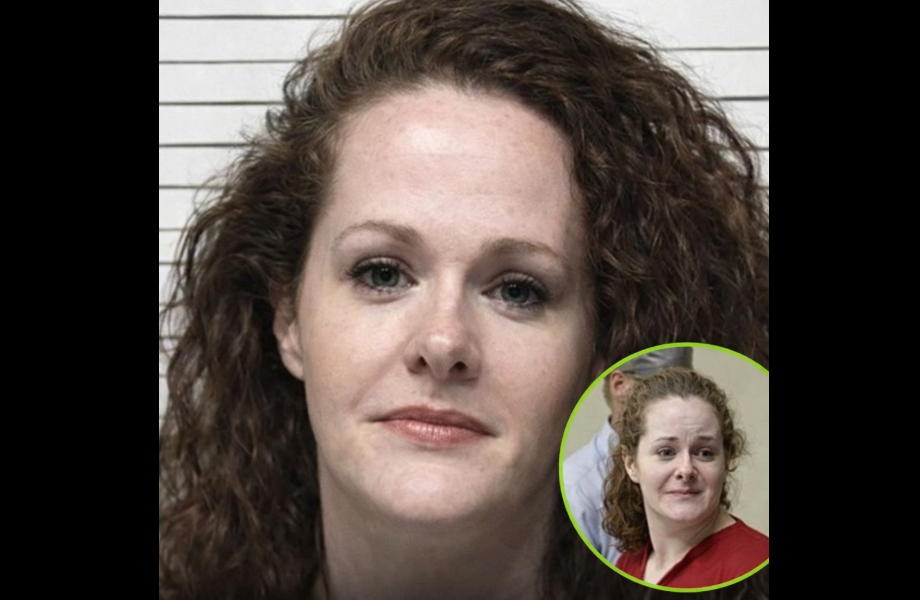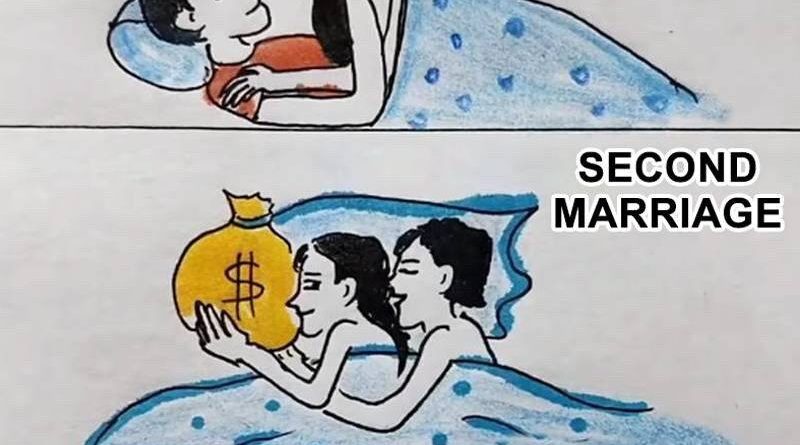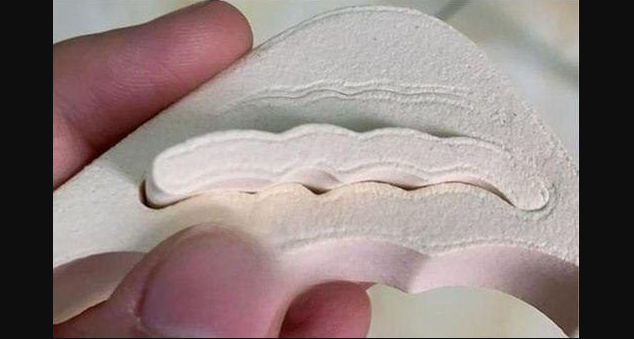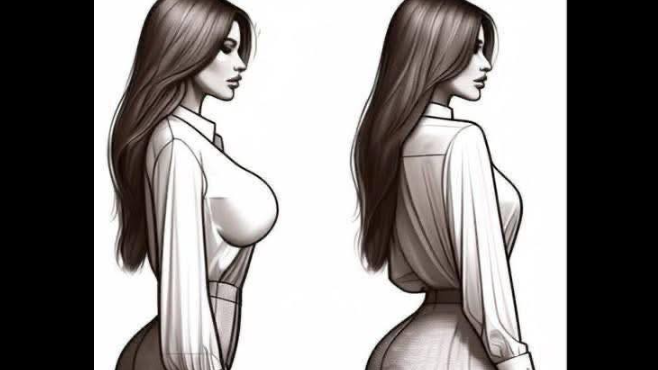At seventeen, a single revelation altered my world: I was pregnant. Those words reshaped my life, severing ties with my home, my father’s affection, and the comfort of familiarity. Eighteen years later, my son stood on that same threshold and spoke words neither of us anticipated.
My father wasn’t harsh—at least not in an overt way. He was reserved, detached, a man who managed his life like one of his auto garages: orderly, measured, predictable. His love carried unspoken conditions, a contract written in invisible ink.
I understood that confessing would fracture our bond, but I faced him regardless.
“Dad… I’m pregnant.”
He didn’t raise his voice. Didn’t shed a tear. He simply gazed at me, then rose, walked to the door, opened it, and said:
“Then leave. Handle it alone.”
At seventeen, I found myself without a home, carrying only a duffel bag and a vow to a child I had yet to meet.
The father of my baby vanished after two weeks, leaving me to navigate the path alone.
We lived in a dilapidated studio apartment, where the heating faltered and cockroaches appeared like uninvited visitors. I worked stocking grocery shelves during the day and cleaning offices at night, murmuring prayers into the darkness. I brought my son into the world with no one waiting outside the delivery room. No celebrations. Only me and my delicate newborn boy.
I named him Liam.
From that moment, he became my purpose.
By age fifteen, he took a part-time job at a garage. By seventeen, customers asked for him by name. He was driven, attentive, resolute—qualities I could only hope for in my youth.
When his eighteenth birthday arrived, I asked what he wanted. His answer caught me off guard.
“I want to meet Grandpa.”
The man who had turned me away without hesitation. The man who never reached out, never wrote, never showed concern.
But Liam met my gaze and said: “I don’t want vengeance. I only want to face him.”
I drove him to that familiar house. Same worn driveway. Same flickering porch light. My hands trembled on the steering wheel as he walked to the door.
My father answered, his face clouded with confusion—until realization dawned like a gathering storm. My son bore too strong a resemblance to me. To him.
Liam handed him a small box. “Here. We can share my birthday.”
Inside was a single slice of cake.
Then my son spoke words that stilled the moment:
“I forgive you. For what you did to my mom. For what you never did for me.”
My father stood silent, his expression as guarded as I remembered.
“But the next time I come to this door,” Liam said gently, “it won’t be with cake. It’ll be as your greatest rival. I’m starting my own garage. I’ll outwork you—not out of hatred, but because you left us to fend for ourselves.”
With that, Liam turned, walked back to the car, and shut the door as if it were any ordinary day.
I couldn’t find words. My eyes stung. My throat tightened. My son—my little boy—had become a man who carried compassion where I bore wounds.
“I forgave him, Mom,” he said softly beside me. “Maybe it’s time you did too.”
In that moment, I understood: we hadn’t merely endured. We had forged something greater. We weren’t shattered. We were unshakable.
